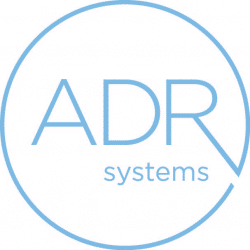Family law mediation is advantageous to parties for many reasons. When explaining the benefits of mediation, Hon. Helaine L. Berger, (Ret.), senior mediator and arbitrator at ADR Systems, focuses on the “four Cs” of family law mediation: cost-effectiveness, confidentiality, control and creativity.
Cost-effectiveness
The cost of family law litigation usually starts at $20,000 and, for many families, exceeds $100,000 with others spending hundreds of thousands; the expense of litigating a dispute can become an astronomical financial burden. Mediating these disputes is almost always substantially cheaper. One notable survey reported that it can cost clients nearly twice as much money to litigate versus mediate a family law case.[1] When parties mediate family law disputes, they often reduce the amount of discovery that would need to be taken, obviate most motion practice, cut out the cost of expert testimony and shorten the life the dispute.
Confidentiality
The records of a family law court proceeding are available to the public. One’s children, employers, relatives or neighbors can read about the case, a family’s assets and finances and the intimate details of the litigants. But mediation communications – any oral, recorded, verbal or non-verbal statements made during a mediation or for “the purposes of considering, conducting, participating in, initiating, continuing, or reconvening a mediation or retaining a mediator” – are confidential under the Illinois Uniform Mediation Act. 710 ILCS 35/2(2) and 35/8. They are also privileged against disclosure, not subject to discovery and not admissible as evidence except under certain limited and specific circumstances. 710 ILCS 35/4.
Family law mediation is entirely private. Sensitive matters remain private matters, with confidentiality agreements between the parties cementing that fact even further. Parties can be candid and authentic in the mediation.
Control
In litigation, parties abdicate their decision-making power to a judge or jury. They will make findings of fact and conclusions of law about the case. Parties are opposed to one another, each striving for a favorable decision. Rulings and verdict in court are based on the law, not what is important to the parties involved.
In mediation, however, parties control how they settle their dispute. The mediation process inherently respects the unique needs and interests of the parties because they work together to settle disputes over contested issues like maintenance, division of assets and parenting time (if children are involved).
That mediation empowers parties to resolve their dispute on their own terms has a lasting effect on the parties. Findings from the Journal of Consulting and Clinical Psychology reported that parents more successfully co-parented their children after mediating their dispute as opposed to litigating it.[2] Relatedly, the same survey noted earlier also reported significantly higher client satisfaction rates from attorneys who helped clients mediate rather than litigate their family law disputes.[3] Mediation gives clients control over their future and the time to reflect on all possible solutions. Litigation does not.
Creativity
Because parties control their mediation, they can think up creative solutions to complex problems at the root of their dispute – often in ways that would not and could not be addressed in court. They can create a unique solution that is particular for their children’s needs, and a solution that maximizes their assets.
Parties in many cases travel for work, work long hours, and are raising children with medical, learning and emotional needs. In mediation, parties can place these schedules, commitments, needs and daily-life particulars at the forefront of negotiations.
Parties can even include financial professionals in the mediation process for cases that involve a large estate, a family-owned business or other unique financial issues. With their help, parties can develop complex solutions that minimize taxes, honor moral obligations (e.g., loans from family members) or mitigate risks to the parties (e.g., buy outs of maintenance obligations or agreements relating to income variations). Mediation gives all involved the time necessary and the structure to look at alternatives to traditional settlements and find ways to benefit everyone.
Mediate Family Law Disputes
The cost-effectiveness, confidentiality, control and creativity of family law mediation allows parties to resolve their disputes in ways that best serve their family, finances and children. It is less stressful, conserves both the parties time and resources and allows them to have a civil relationship going forward. While parties have complex life transitions ahead of them, in mediation, they can find common ground and reach a settlement that works for all.
Learn more about family law mediation and contact us to set a case.
…………
Hon. Helaine L. Berger, (Ret.) is an experienced litigator who tried cases in Criminal, Chancery, Law and Domestic Relations before serving as a judge in Cook County’s Domestic Relations Division for 19 years. She has been active in the legal community, including Chair of the CBA’s Fee Committee and President of the Women’s Bar Association of Illinois. Judge Berger concentrates her practice in family law and is flexible and creative in her approach. She has helped ADR Systems launch an innovative fast track mediation program for family law cases.
Request Judge Berger’s Availability
ADR Systems, It’s Settled. ®
…………
[1] Boyd, John-Paul E., et al. “An Evaluation of the Cost of Family Law Disputes.” Canadian Forum on Civil Justice, 2017.
[2] Dillon, Peter, et al. “Child Custody Mediation and Litigation: Custody, Contact, and Coparenting 12 Years After Initial Dispute Resolution.” Journal of Consulting and Clinical Psychology, vol. 69, no. 2, 2001, pp. 323-332
[3] Supra note 1, at 42





